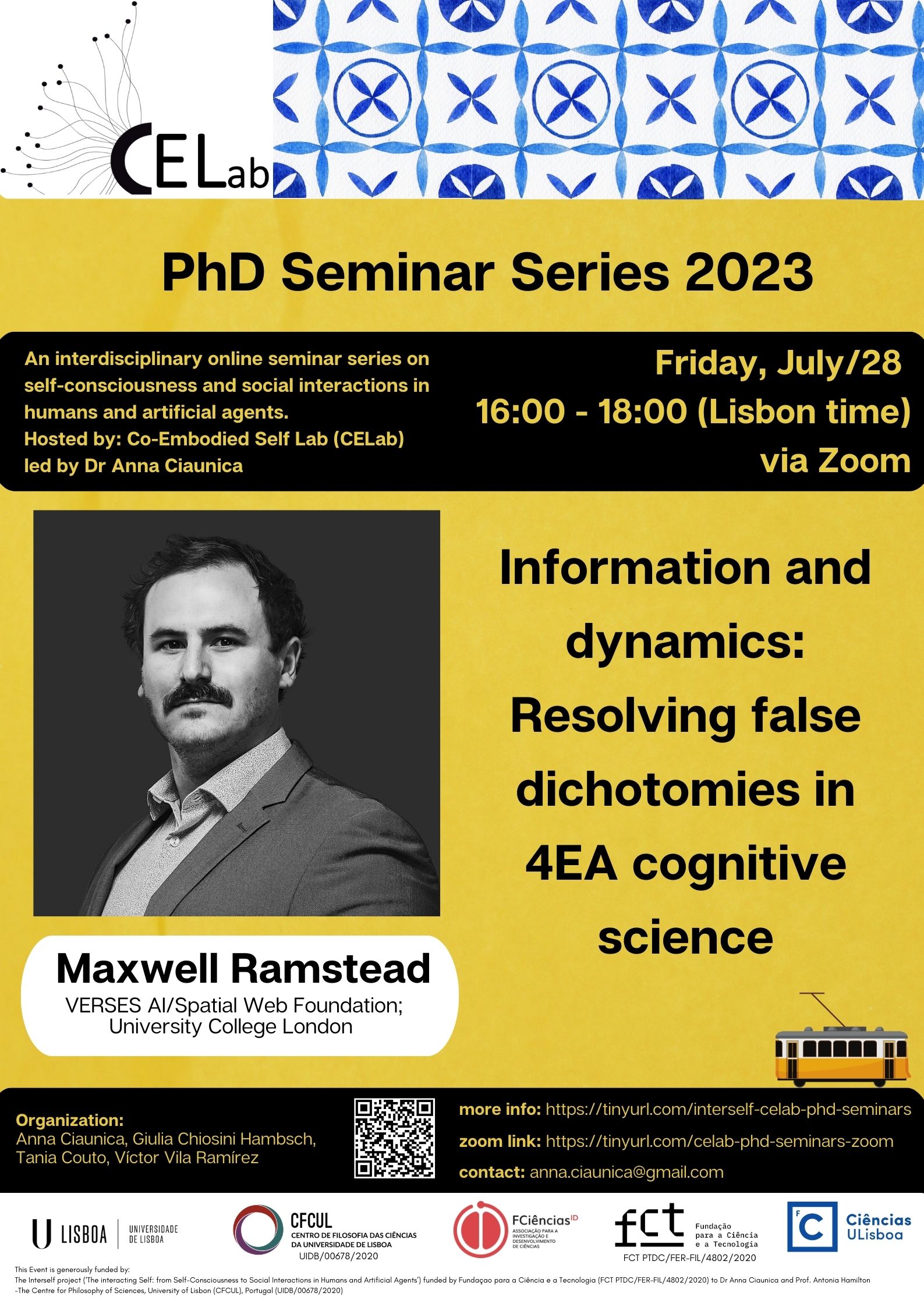
Abstract
This talk will critically examine a foundational assumption of the 4EA literature—on the embodied, enactive, extended, embedded, and affective mind: namely, that dynamical systems theoretic and information theoretic accounts are mutually exclusive and incompatible. We argue that dynamical systems theoretic and information theoretic accounts are mutually implying. We argue that this foundational assumption of the 4EA literature is incorrect. We argue that this argument has no basis in mathematical fact—that it is, mathematically speaking, a nonstarter, and that it has to date been exclusively motivated by a priori ideologically commitments. We argue that it is currently holding the field back significantly from making progress, and propose an alternative framing via the free-energy principle
Nota biográfica
Maxwell J. D. Ramstead is the Director of Research at the VERSES Research Lab, where he and his team are developing a new, standardized approach to contextual computing, knowledge graphs, and graphical inference agents. Ramstead is also an Honorary Fellow at the Wellcome Centre for Human Neuroimaging, at University College London, in the United Kingdom, where he works with Professor Karl Friston within the Theoretical Neurobiology unit. Ramstead’s research focuses on the free-energy principle, Bayesian mechanics, multiscale formulations of active inference, and computational phenomenology.
Informações
O seminário será realizado em videoconferência, via Zoom.
Link Zoom
https://tinyurl.com/celab-phd-seminars-zoom
Contacto
anna.ciaunica[at]gmail.com